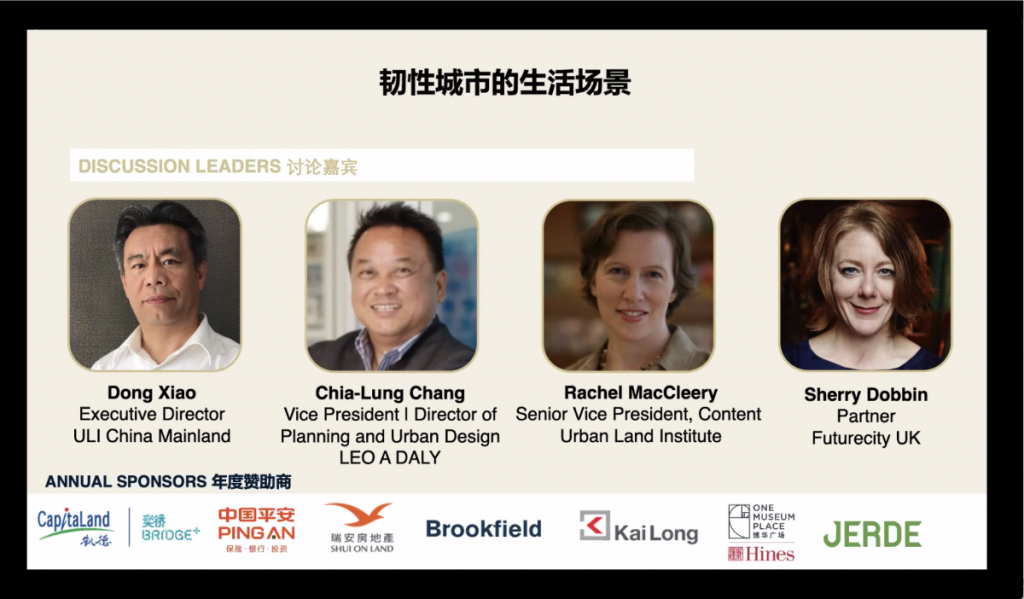| On Thursday 23 July, Sherry Dobbin, Managing and Cultural Director at Futurecity, Chia-Lung Chang, Director of Planning and Urban Design at Leo A Daly and Rachel MacCleery, Senior Vice President at Urban Land Institute engaged in an international panel discussion (across three extreme time zones) to talk about resilience in our living environment, moderated by Dong Xiao, Executive Director of Urban Land Institute China. As the third instalment of Digital Dialogues, a series in which Futurecity talks to cultural and property innovators to reveal the complexity of collaborators and client teams involved in digital place-shaping process, we offer a snapshot of their conversation that followed their presentations about keeping human experience through the COVID crisis and how a positive Creative Placemaking process helps us navigate all fluctuations in our cities. |

| Dong Xiao: How do you think people will balance their anxiety of going to public spaces but still having some aspect of social activities in their lives with Covid as the new norm? Sherry Dobbin: Well, ultimately people are social animals, by nature, so we all crave a social experience. If we ask ourselves how we might creatively make enticing places that function in a different way, how a public space might change in a fun way to still maintain that safe distance, then we might embrace it together. We will always seek out ways in which we can interact, so how might we start with a positive so that people can start to imitate good behaviour? A key to the answer here is to access our creatives to think more in line about interesting solutions, to rethink human connections in a safe way, a way that gives us hope. Chia-Lung Chang: Definitely agree, human beings need interactions, they need comfort and also will still seek out to learn in that respect, too. With the pandemic we are all finding new ways to learn, as we reopen offices in the USA, we are thinking about how to potentially stagger shifts, so that we get a sense of the working experience but we will still be able to maintain the number of people who are in the office at one time. This will be a much needed benefit as we all miss that sense of overhearing a conversation which then leads to a good idea, an impromptu meeting with colleagues and the general sense of comradery found within an office environment. Rachel MacCleery: Yes, I agree these experiences have been challenging for communities because we are social creatures, especially with the factor of added uncertainty of when these measures will end. As we find new ways to be together safely, probably in the USA, there is an added sense of pitting communities against the individual. If we can do more to harness a sense of collective responsibility and collective well-being, to get people to see the role they play help keep themselves and other communities safe, then that can contribute to becoming the norm. It’s great to see creatives and leaders modelling that and I think there’s a definite need to re-prioritise the social contract of taking care of each other, but together. |
http://vimeo.com/446441567
Image:
ULI Beijing Webinar: Resiliency on living environment, July 23. © Futurecity
